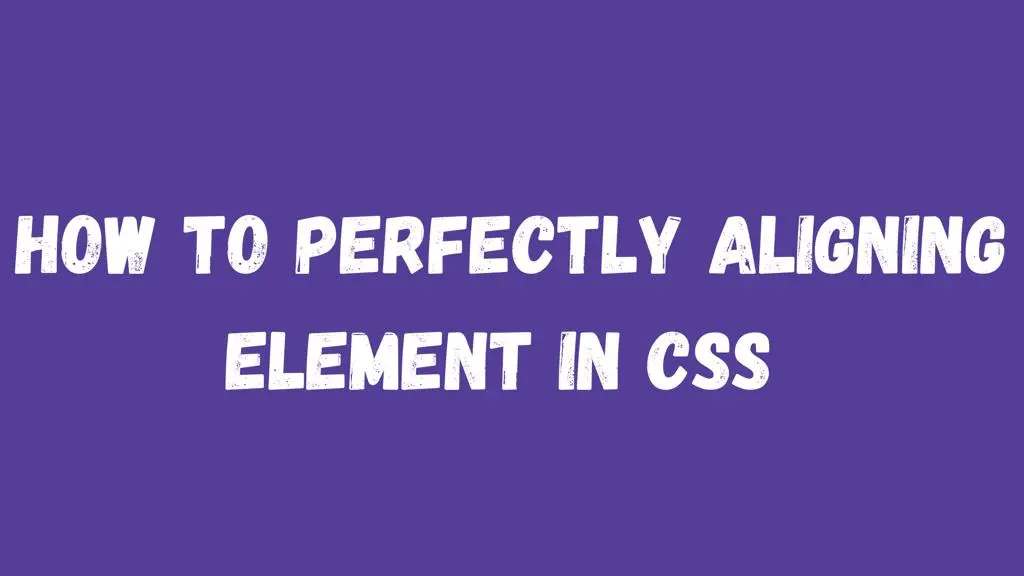How to Perfectly Aligning Elements in CSS
Jan 19, 2024
2 mins read

Mastering Horizontal Alignment in CSS: A Comprehensive Guide
Achieving perfect horizontal alignment is a common challenge for web developers. Whether you’re centering text, images, or entire containers, CSS provides several techniques to ensure precise alignment. In this guide, we’ll explore various methods and provide code examples to help you master horizontal alignment in CSS.
1. Text Alignment:
CSS offers the text-align property to align text within an element. Use values like left, right, center, or justify. For example:
|
|
2. Flexbox Magic:
Flexbox is a powerful layout model that simplifies alignment challenges. Create a flex container and use justify-content for horizontal alignment:
|
|
3. Grid Layout for Precision:
CSS Grid Layout is another excellent tool. Use the grid-template-columns property to control column widths, achieving precise alignment:
|
|
4. Margin Auto for Centering:
The margin: auto; trick works wonders for centering block-level elements horizontally. This technique is especially useful for aligning containers:
|
|
5. Inline and Inline-Block Elements:
For inline or inline-block elements, set text-align: center on the parent container and use display: inline-block for the child elements:
|
|
6. Transform and Translate:
Utilize the transform property with translateX to shift elements horizontally. This method is handy for fine-tuning positioning:
|
|
7. Calc() Function for Precision:
The calc() function enables precise calculations within CSS properties. Use it to dynamically set widths and achieve accurate alignment:
|
|
Perfect horizontal alignment is crucial for creating visually appealing and professional-looking websites. By mastering the techniques outlined in this guide, you’ll have the tools to tackle various alignment scenarios. Experiment with these methods, adapt them to your specific needs, and watch your web layouts come to life with precision and style. Happy coding!
Popular Tools
Recent Articles
- Mastering Localstorage in Javascript Your Comprehensive Guide
- CSS Vertical Alignment 11 Effective Implementation Methods
- The Ultimate Guide to Const Assertions in Typescript
- Typescript Typecasting a Step to Step Guide
- How to Use DangerouslySetinnerHtml in React Application
- CSS Tutorial: How to Create a Custom Mouse Cursor
- Types vs Interfaces in Typescript
- How to Switch Node Version on Macos
- How to Switch Node Version on Ubuntu
Sharing is caring!